Truyen Thong Chin (Welldone Communications)
Welldone Communications is an independent project founded by Tran An Binh and Hoang Giang Son, two experienced development communication practitioners with a deep commitment to addressing ethnic minority and gender issues.
Since its establishment in October 2021, the project has already launched FOUR programs and is now seeking collaboration with national and regional non-profit organizations to advance the integration of participatory approaches in development practices.
Mission:
Welldone Communications aims to challenge the traditional top-down approach in development communications by promoting a participatory approach that prioritizes the voices and agency of communities.By doing so, we inspire development practitioners to view communications as a integral part of culture and social change.
Our mission is to impart knowledge and provide training to development practitioners, enabling them to put participatory communication techniques into practice for sustainable and impactful social change.
Program 1: Training & Hands-on coaching
(recipient of Aus4Skills Australian Alumni Grants Fund)After 10 months of conducting research, building curriculum and organizing the intensive four-day training course, Well-done Communications achieved its goal to enable development practitioners and communicators to rethink the role of development communication.
24 participants from diverse backgrounds, including:
3 officers from international NGOs
5 officers from local NGOs
4 officers from social enterprises
8 members from community-based organizations
3 activists
1 teacher.
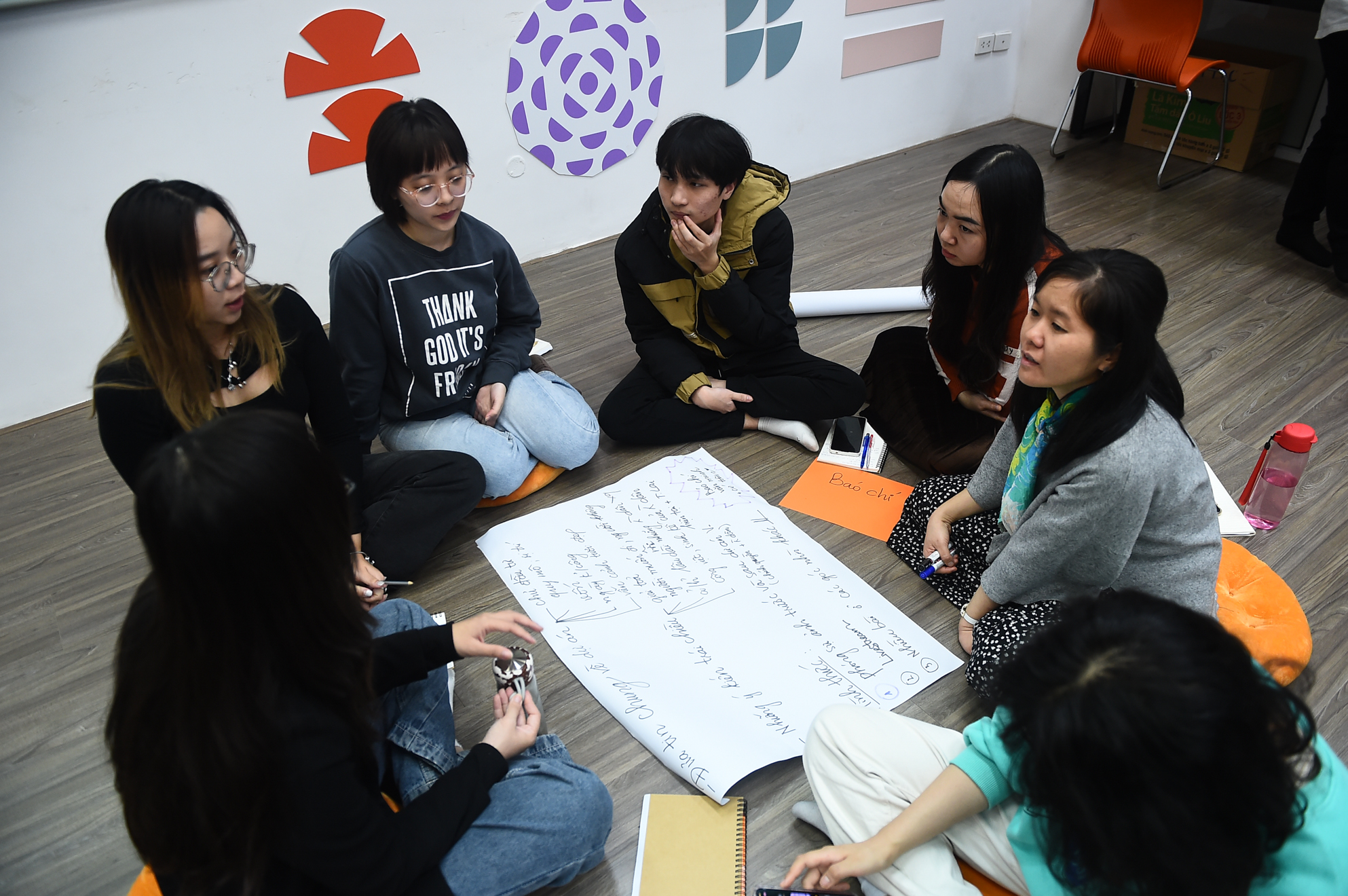

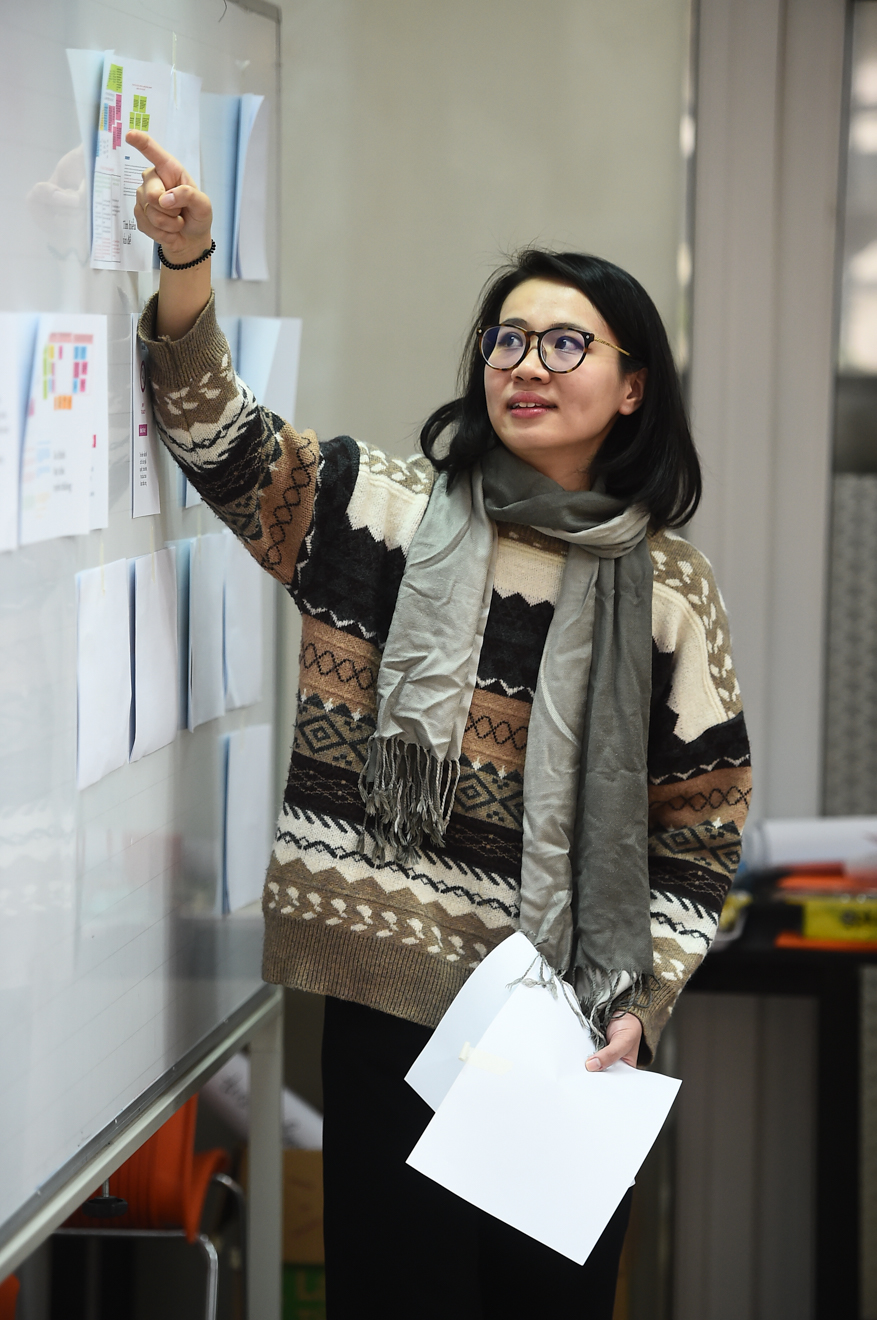

From our end-of-course survey:
90% of participants felt that the course's content was highly relevant to their work.
100% of participants agreed and strongly agreed that they had better understanding of development communications, especially how different development paradigms could lead to different ways of doing communications.
90% of the participants said that they would share what they have learned with their communities or co-workers, which further amplifies the outcomes of this project
Program 2: Strengthen voice and participation of indigenous ethnic minority (IEM) communities in promoting the value of traditional practices of IEM communities in natural resources management and advocating for recognition of these practices and beliefs in policies and public opinion
(worked as consultant for iSEE Institute)Three community members from diverse ethnic groups to work on a communications project addressing land and natural resource management issues in their own communities


The fact that the team has successfully developed a comprehensive communications strategy by themselves, after months of diligent effort, is the concrete evidence about how they have grown in terms of capacity. The strategy aims to target two distinct groups through two major products: wall calendars, which have a direct influence on village elders, and social media videos, which indirectly influence policy makers at the communal level.
The team's first communication products are wall calendars that feature messages and guidelines for combining customary laws with state laws:

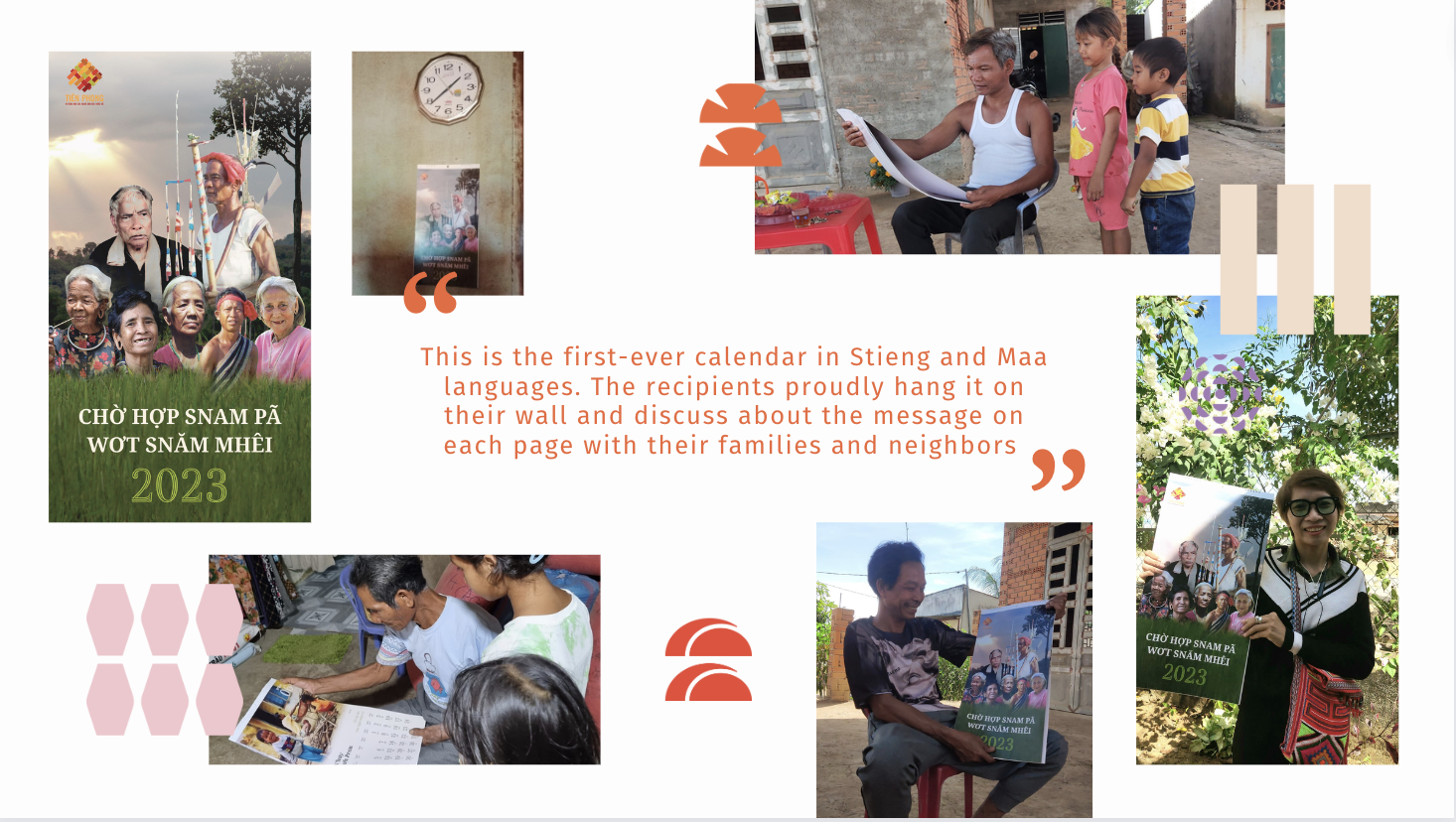
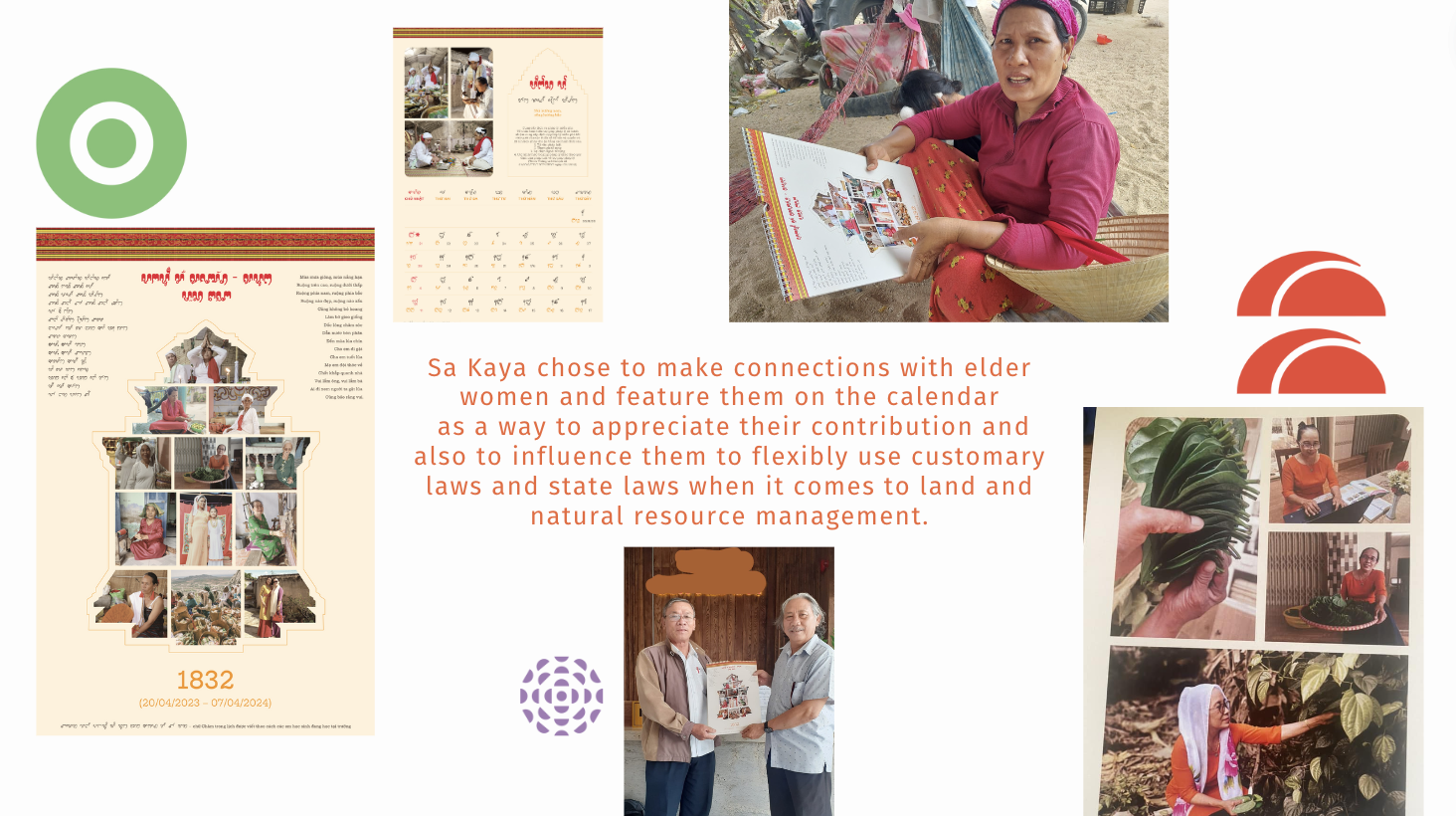
The team's second communication products are videos series:

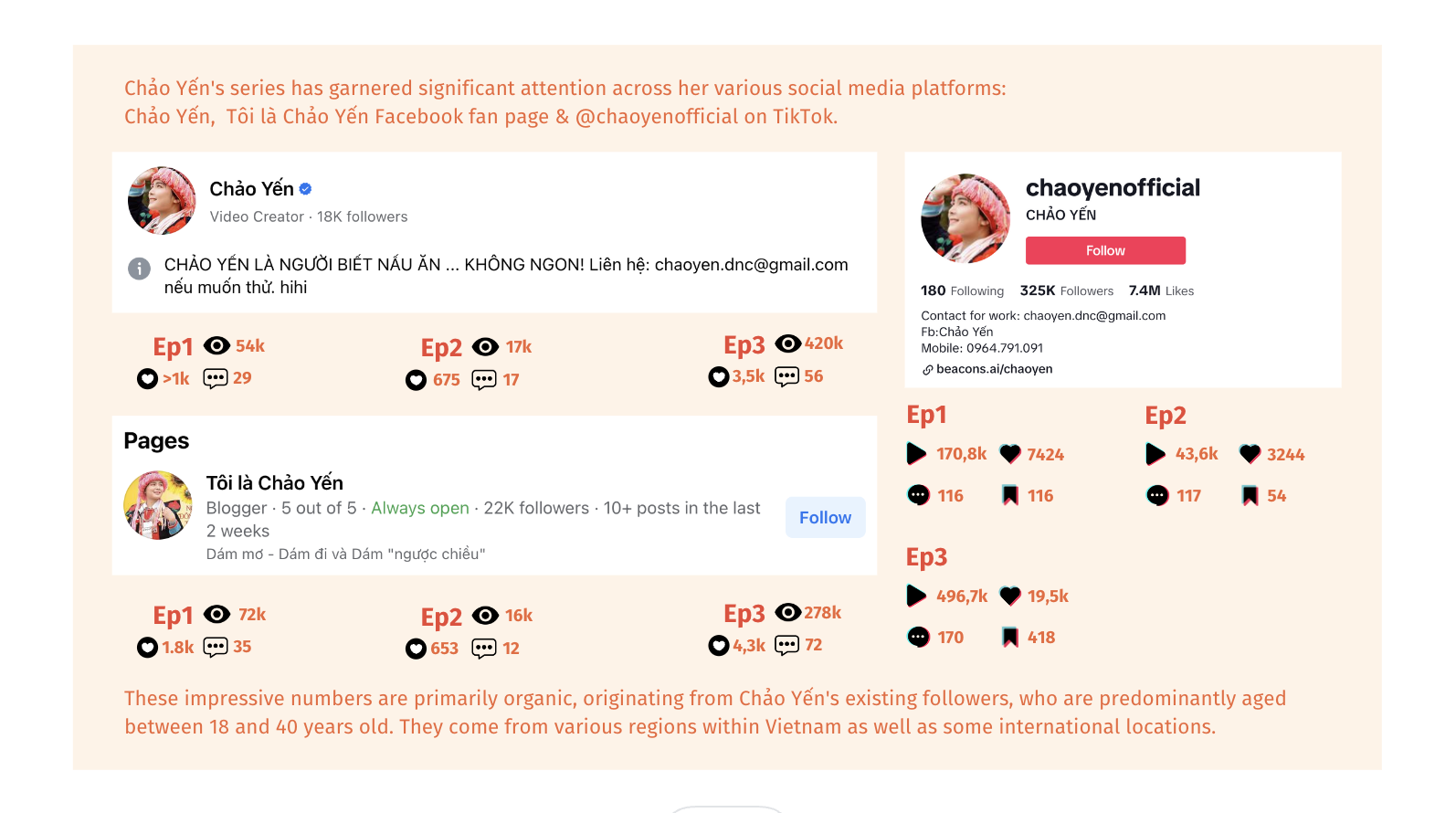
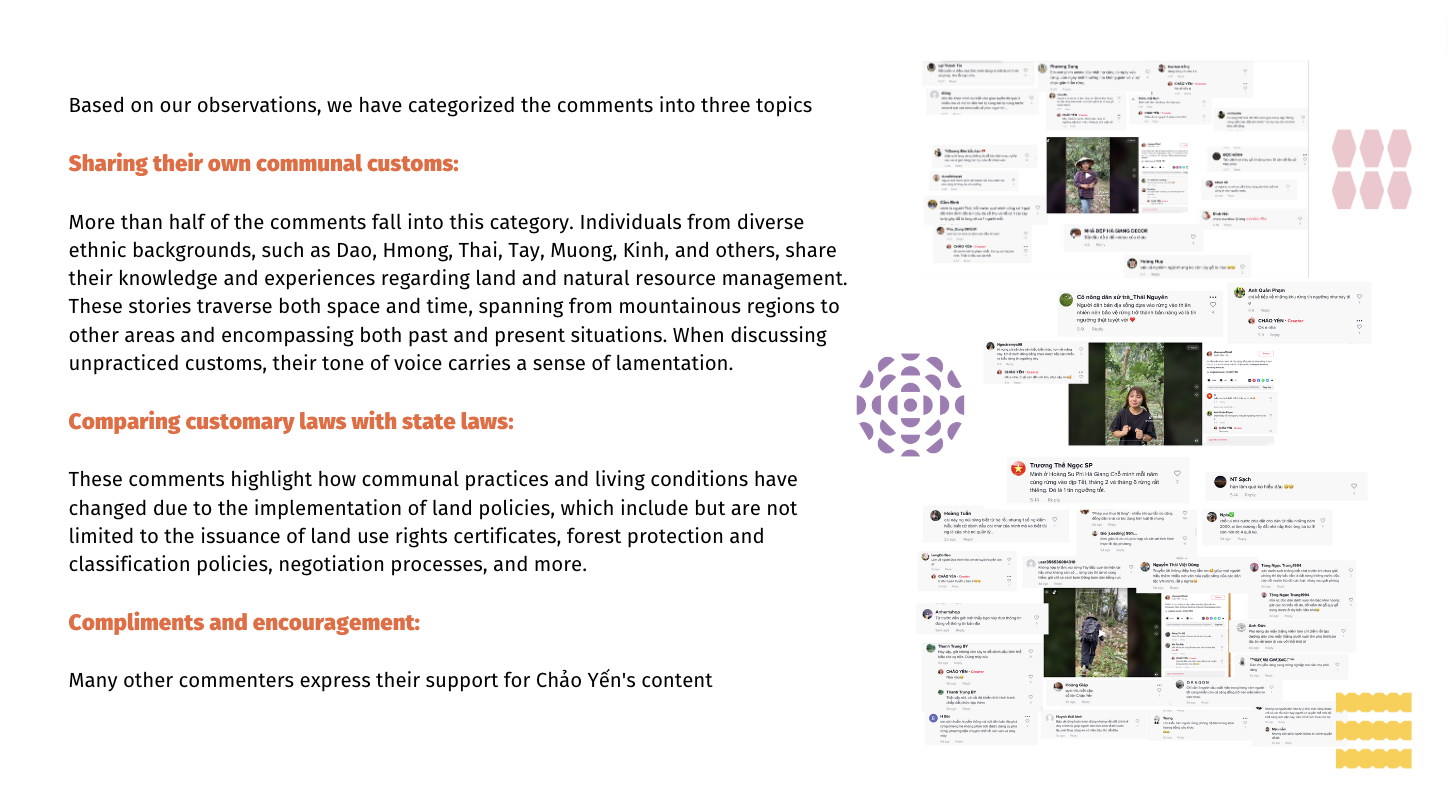
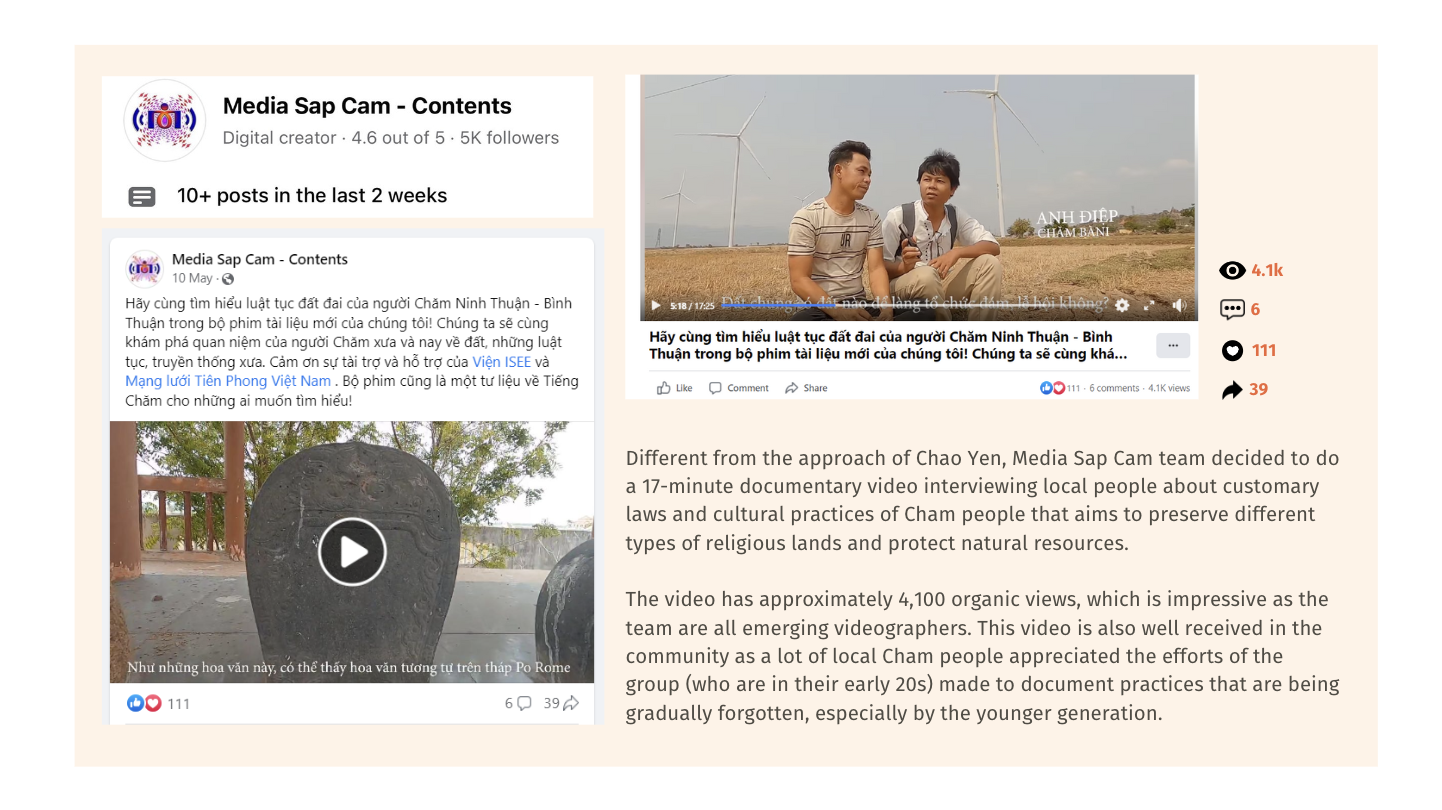
Program 3: Fair For All
(worked as consultant for iSEE Institute and Oxfam Vietnam)Eight community-based groups have developed innovative communication products to address local agricultural challenges, empowering stakeholders to reclaim their agricultural practices and enhance their role in decision-making processes:
-
A series of six classes on learning and teaching Indigenous techniques for making cotton fibers
-
An Organic Pesticide Handbook
-
A Tay classical song in the then style to celebrate their unique local rice
-
A message-printed safety facemask for farmers
-
A dialogue on pesticide safety usage among Elders, pesticide companies, and farmers
-
A community garden to revive Indigenous plants
-
A journey to identify forgotten Indigenous herbs in the forest
-
An experiment to produce organic pesticides and negotiate their use with local farmers
Beyond supporting communities in identifying issues and creating responsive communication products, this project has also inspired NGO workers to adopt and implement participatory development communication practices in their work with community groups. This journey of change is reflected in a NGO workers’ writing.
Program 4: Communications capacity building for Asexual in Vietnam (AiV) and YPeer Vietnam
(worked as consultant for iSEE Institute)AiV identified “being compelled to explain asexuality over and over again” as an overlooked issue that asexual people have faced for years. This issue is part of epistemic exploitation, a challenge marginalized communities face, widely discussed among scholars and activists globally but still relatively new to Vietnam. With that in mind, the team created a series of “painkiller” comic book—a soothing remedy for asexual people to feel both supported and empowered to take appropriate action in uncomfortable situations.
YPeer recognized that coming out is a complex, diverse and exhausting journey. Their communication project defines itself as a recharge station, where not-yet-came-out individuals can pause to feel embraced, heard, and relieved of stress before continuing their journeys. They bring this vision to life through a podcast series and three workshops.
